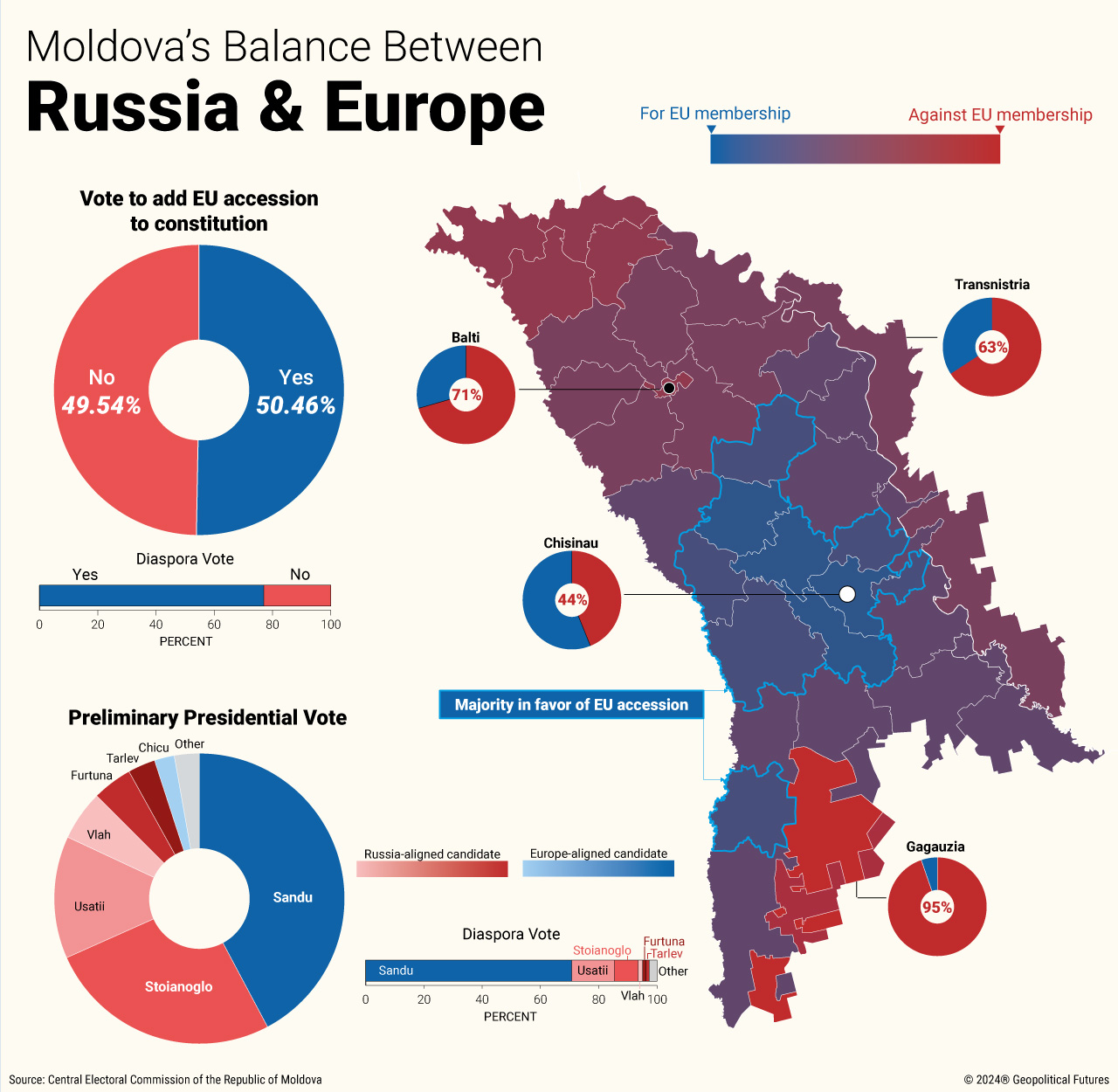In the first round of Moldova’s presidential election, pro-Western incumbent Maia Sandu led but did not secure an outright win, prompting a runoff against pro-Russian challenger Alexandr Stoianoglo. A referendum on whether to add the goal of EU membership to the constitution passed narrowly with 50.46 percent approval, driven largely by diaspora support. The voting patterns highlight a stark divide: pro-European sentiment dominates urban and central areas, while northern, southern and border regions lean pro-Russian.
These elections are pivotal for Moldova’s EU ambitions and internal stability. Pro-European leaders face obstacles like public discontent and fatigue with economic reform, which pro-Russian candidates may exploit to present themselves as alternatives. Even against a unified pro-Russian opposition, Sandu could achieve a narrow victory. If so, pro-Russian forces are likely to intensify efforts, especially with parliamentary elections next year. A stronger pro-Russian showing could test Moldovans’ resolve to join the EU once again.





